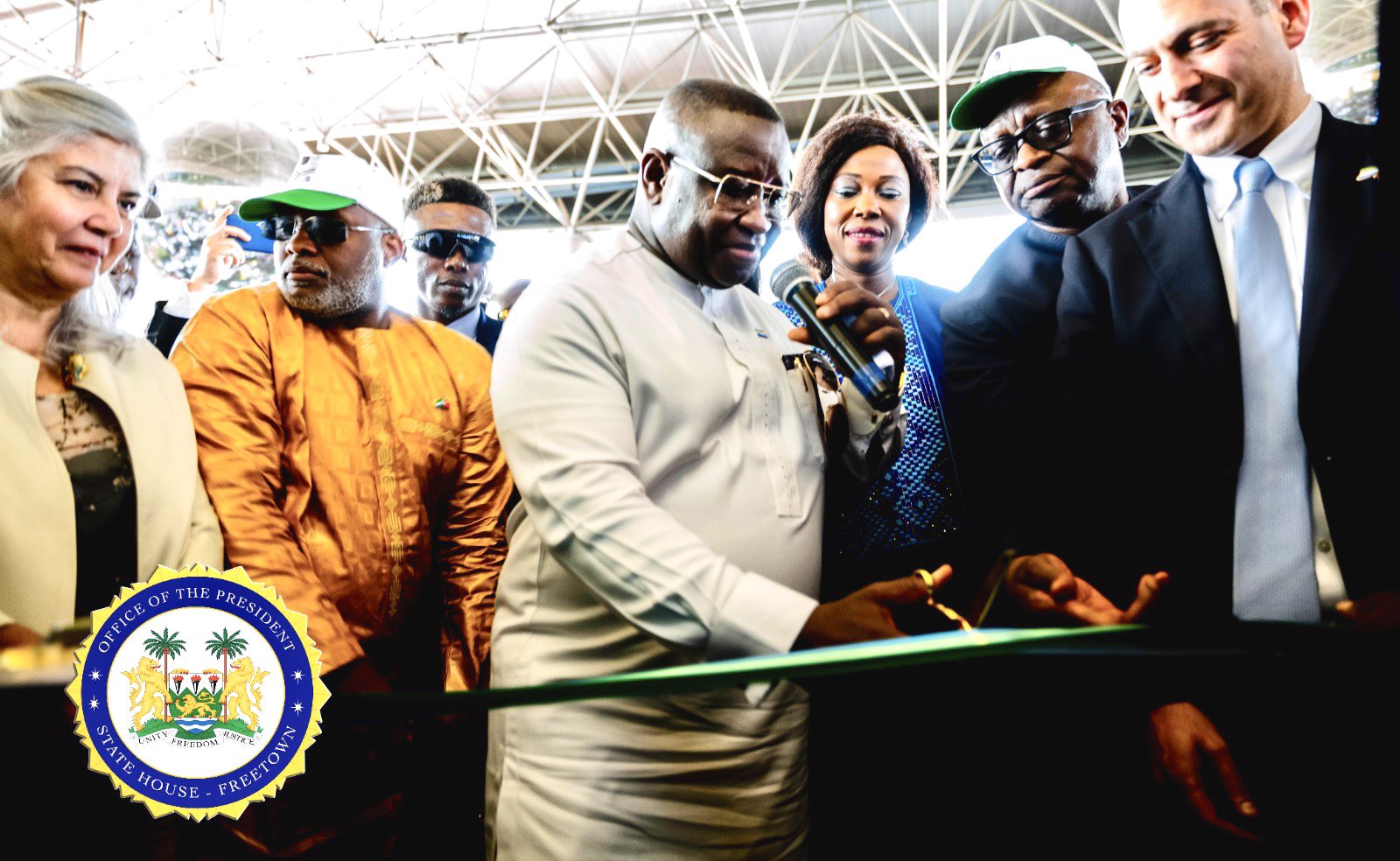David Smith, Business Analyst, UK
During his campaign stop in 2018, the then Candidate of Sierra Leone’s Peoples Party, SLPP, Dr Julius Maada Bio, now president of the country, made some very bold and ambitious promises; some even elicited mockery from the then-ruling APC. The Free and Quality Education for Citizens was an impractical delivery that has been sustained by the Bio-led administration amidst scarce resources and a global economic downturn. Four years on, and in a clear departure from conventional political rhetoric, President Bio has broken yet another jinx with the unveiling of a brand-new airport for the country to replace the first, which was built over 3-decades ago by the British. The state-of-the-art newly completed Freetown International Airport in Lungi is a $270 Million public-private partnership project, the first Green Airport in the region to be fully powered by solar energy. It will also accommodate larger/modern aircraft and reduce the operation cost for the country’s international aviation partners.
According to reports, the newly constructed Airport will host up to ten (10) planes at every given time with a capacity of 50,000 passengers monthly compared to 10,000 monthly using the old Airport. The reason for such massive construction is to make Sierra Leone a hub for international travel in the sub-region.

The new Airport is descriptively night-and-day different from the old one. The 14,000 m² terminal building is three times the size of Freetown International Airport’s existing terminal facility – along with arrivals and departures areas for commercial passengers, the development contains a VIP/Presidential channel, improved cargo facilities and a brand-new air traffic control tower built in the shape of a diamond. This development is a milestone for the country, as it is the first international terminal to be built since it gained independence in 1961. In addition, there is a duty-free with a wide range of goods and a provision for a five-star hotel which is going to be part of the new Airport. A new runway was also constructed to accommodate any flight, irrespective of size or volume.
In his speech during the unveiling of the Airport, the President, Dr Julius Maada Bio, stated, “Today is a great day, a new day for all of us. This is the first time in the history of this country that a completely new international airport terminal has been constructed, with the latest technology and the highest compliance standards to make it more attractive to more international airlines.”
He added, “Today we have an ultramodern air terminal three times larger than the existing terminal and has brand-new facilities that will accommodate up to a million passengers a year to make it a major transit hub in the sub-region. We now have on offer a safer, modern and very comfortable airport.”
As contained in an earlier report by the Ministry of Transportation and Aviation, discussions are ongoing on various possibilities, including using the old Airport as a military air force wing that would accommodate private planes. There are reports that the government is also considering bidding to use the old facility as the ECOWAS aircraft maintenance site.
The new Airport is a key deliverable under President Bio’s Infrastructure Initiatives in the New Direction Agenda. The project was conceived to boost economic activities in the country, unlock the country’s tourism potential, and position the country as a hub for aviation activities in the Mano River Union (MRU) region.
Expectedly, the new FNA Airport Infrastructure has positioned Sierra Leone to meet the International Civil Aviation Organization (ICAO) requirements for Airport Certification, including being compliant for Safety, Air Navigation Capacity and Efficiency, Security and Facilitation, Economic Development of Air Transport and Environmental Protection.
While speaking on the ICAO certification, the Director General of Sierra Leone Civil Aviation Authority, Dr Moses Tiffa Baio, stated, “The investment by SUMMA in our airport Aviation infrastructure has addressed the deficiencies that were in our airport physical infrastructure which was discovered during the Airport Council International (ACI) APPEX review report in 2019. This has laid a solid foundation for the certification of the Freetown International Airport.”
He added, “With this kind of investment, you have created the enabling environment for more airlines to identify Sierra Leone as a perfect destination to fly to or operate from to many other parts of the world. The certification of the Airport will definitely increase the confidence of major airlines wanting to operate in Sierra Leone.”
Analysts have also projected that the new Airport could herald the return of Sierra Leone as a key West African hub and drive tourism to the country, which once enjoyed a reputation as a popular beach getaway in the 1970s and 1980s.
Kabineh Kallon, Sierra Leone’s Minister of Transport and Aviation, revealed that “at least three more” international airlines have expressed interest in establishing operations at the Airport’s new terminal.”
With the completion of the Airport, the Bio-led administration has set up the last trigger for the commencement of the construction of the Lungi bridge, which has been described as a major transformational project needed to connect economic development between Lungi and Freetown. Also planned on the same corridor is the Sierra Leone Financial City. Reports show that surveys have been completed and beacons fixed for the commencement of the project.
For 25 years old, Hassan Bundu, the Airport launch is historical and evokes some sense of pride as a Sierra Leonean.
The celebratory mood in Freetown has also been greeted by a mixed reaction from a section of the country, especially among the supporters of the opposition APC, who maintained that the project is an expansion of the existing Airport and not an entirely new project by the government. However, some analysts have dismissed their pessimism, citing political affiliations as the basis for their criticism of the project.
Whatever the inclination, one thing is sure, the West African country has turned a corner with this new project, and the only way to go from here is up, and it is worth celebrating. The Bio-led government also deserves commendation for its vision and commitment to usher in sustainable economic transformation in the country.
David Smith is a business analyst with over 30 years of experience covering Sub-Saharan Africa; he writes from London, United Kingdom.


